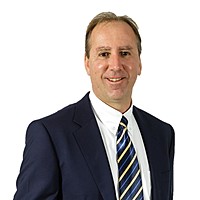Balancing the scales of growth and defence through global property
As we approach the end of 2021, views on how we live, work and play in a post-COVID world are becoming clearer.
Uncertainty remains but our base case at First Sentier Investors is for the economic disruption associated with social-distancing restrictions to subside over time as vaccination levels reach their targets.
We expect global economies to continue to recover. However, full economic normalisation is not likely to occur until international borders fully reopen. Travel restrictions will then be lifted and supply chains restored.
In this wire I provide an overview of the rapid changes taking place in global property, discussing which asset types are winning and which are losing. I also draw on my decades in the business to explain the importance of thorough risk assessment.
A world awash with cash
Economies throughout the world are still dealing with very high levels of globally coordinated government fiscal stimulus combined with extraordinarily loose central bank monetary policies.
Those central bank interventions have consisted mainly of ultra-low interest rates and extensive quantitative-easing programs that have increased the money supply to spur economic activity.
The end result is a global financial system full of cash, which has been supporting elevated markets.
Technology is creating winners and losers
These conditions, combined with long-term thematic changes, have enabled real estate investment trusts in property sectors supported by transformational tailwinds to continue to display strong operating fundamentals.
Central to the majority of these trends is the rapid advancement of technology, which is driving social changes.
These changes are resulting in large amounts of capital being re-allocated across global economies.
Overall, we believe the real estate sector is a massive beneficiary of this transformation but some types of property assets will likely be disrupted.
The benefits of the increased adoption of e-commerce and the rise of remote working have negatively impacted certain property types.
Shopping-mall fundamentals remain affected by increasing online retail sales.
Tenant demand for CBD office buildings is falling, due to the continued adoption of flexible workplace practices and rising decentralisation.
Cashflows in these asset types are likely to remain pressured.
A notable beneficiary of the social changes is the logistics sector, where operating fundamentals are very strong.
Retailers, e-tailers and wholesalers are making large investments in their supply chains to meet the demand for e-commerce.
Modern logistics warehouses are improving supply-chain efficiency and reducing costs.
These assets are attracting strong tenant demand and we believe the global shift to online marketplaces is likely to continue for decades.
How we're responding
We place importance on delivering a higher risk-adjusted return, measuring performance after considering the degree of risk taken to achieve it.
We seek to allocate capital into those assets we believe will generate the highest risk-adjusted returns at any point in time.
We focus on absolute, through-the-cycle returns and seek to preserve and grow client capital.
Early lessons in risk management
I was in my first year at university when the 1987 stock market crash happened. As a young commerce student, I remember noting how risky investing can be.
It wasn’t until years later that I heard the stories of flamboyant broker Rene Rivkin walking around the Sydney stock exchange floor, buying up blue-chip companies at large discounts.
Understanding the balance between risk, prudence, and opportunity, I learnt that true wealth creation could only come with a focus on capital preservation.
The one I wish had got away
We were invested in Valad Property Group leading into the global financial crisis.
Although alarm bells were ringing, we were late to exit the investment. I learnt to always trust my intuition and to never ignore it – it’s there for a reason.
Seizing the opportunities
The First Sentier Wholesale Global Property Securities Fund is positioned in residential-for-rental assets such as apartments, detached housing and manufactured housing.
Occupancy levels and rental collections have remained strong throughout the pandemic, both at more than 95%.
Occupancy has been strong in logistical warehousing, also above 95%, and rents have grown to levels not seen in more than 20 years.
Self-storage facilities are recording high occupancies due to strong housing markets, and leisure assets, such as convention hotels and resorts, are benefitting from the re-opening of domestic travel from short-haul flights and drive-to locations.
We believe the First Sentier Wholesale Global Property Securities Fund offers a unique opportunity for investors, who can benefit from the underlying defensive characteristics of real estate while gaining exposure to growth industries.

5 topics
1 fund mentioned
1 contributor mentioned


